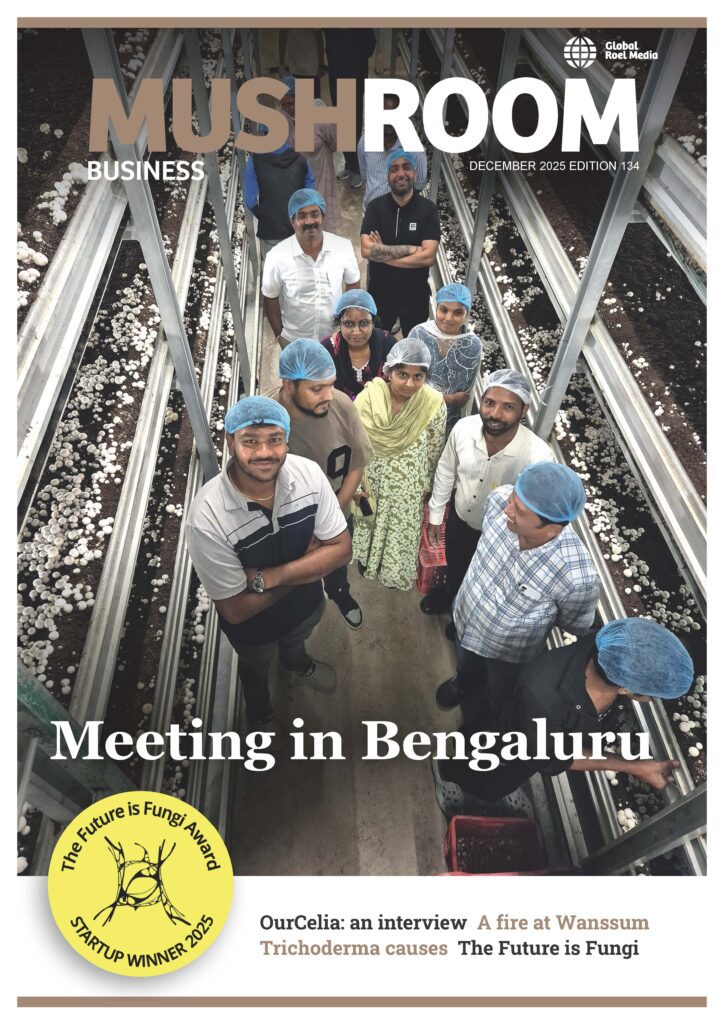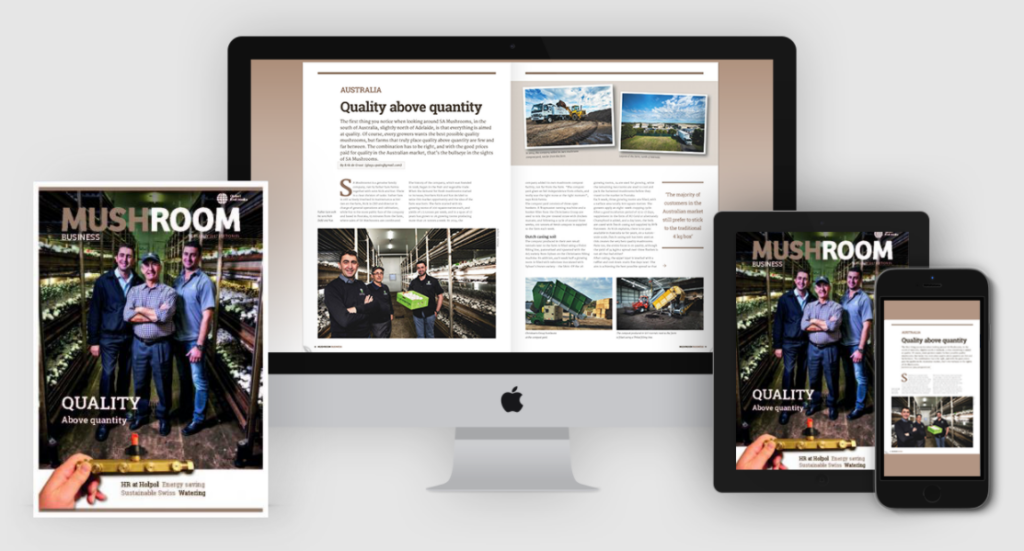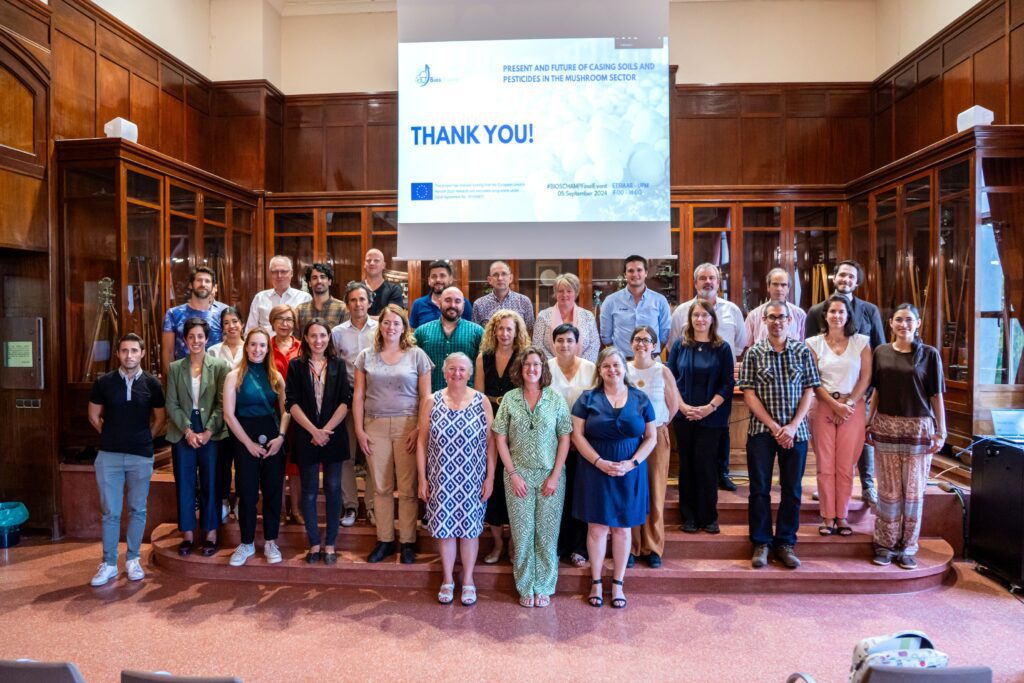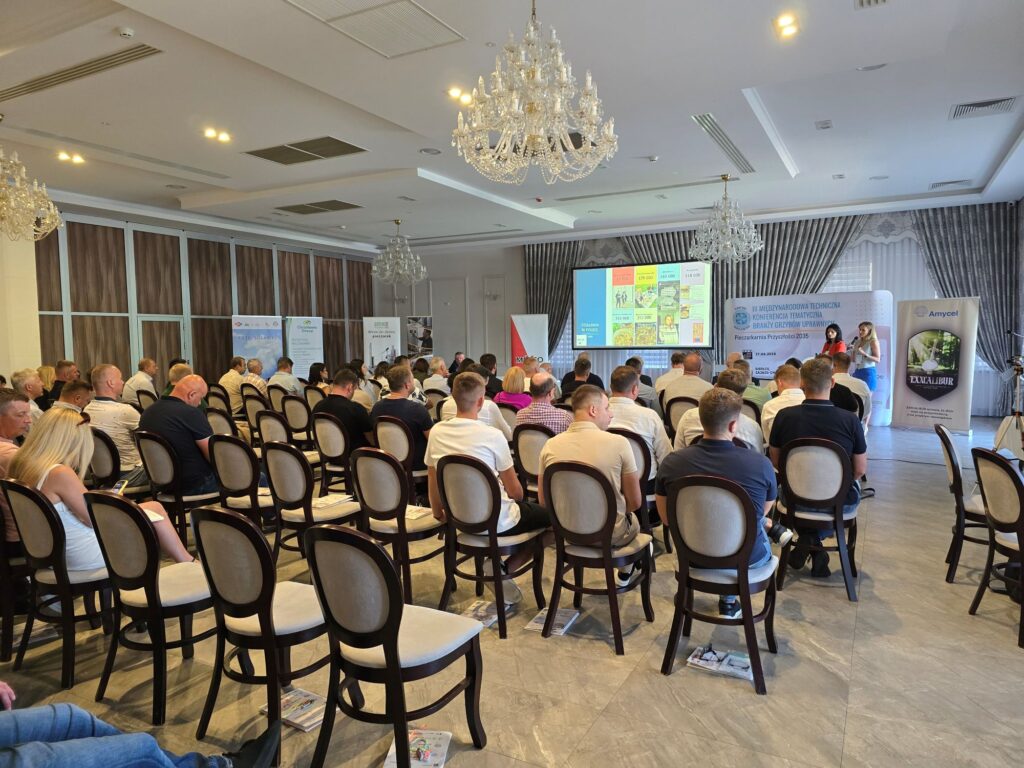At the end of August the Ministry of Jihad-e-Keshavarzi held a series of meetings which were …
At the end of August the Ministry of Jihad-e-Keshavarzi held a series of meetings which were arranged by the Iranian Mushroom Growers Association which included lectures, theoretical and practical classes for the Ministries Agricultural Specialists from cities all over Iran.
On the first day we were privileged to present the first in this series of meetings which was held at the Agricultural University in the City of Karaj. The purpose and aim of these meetings was to raise the general knowledge of all those ministry officials who are responsible for granting permission and licenses to those wishing to start up new mushroom growing businesses, as all new businesses in Iran need government approval beforehand.
The three days were spent learning about the whole business of mushroom growing from compost production to the actual mushroom growing, and included the main technical issues growers in Iran need to face. It included information about all the various processes and control systems, and the important structural requirements required to build both efficient composting facilities and growing rooms.
The talks were intensive and concerned all aspects of the business. Draft drawings and budgets were given to illustrate various sizes of business from 200 to 600 tonnes mushroom production per annum and the high capital requirements demanded nowadays to build a successful profitable farm.
Practical sessions were also held over the last two days on a major compost yard and growing farm, so all the points and issues raised during the lectures and talks could be seen and experienced first hand by the officials. This was to enable the authorities to ensure that all newcomers to the industry now only started up in the correct way so as to avoid any waste of the counties precious resources.
The meeting was chaired by Mr M.B.Gheibi who is the Deputy of Horticultural Affairs of the Agricultural Ministry and the General Manager of the Flowers, Ornamental & Medicinal Plants division. Mr Gheibi was trying to co-ordinate all the specialists working in the many regions of Iran to more wisely improve and standardize the situation with regard to the building of new mushroom farms. He was also intending to increase the working relationship between the Government and the Mushroom Growers Association so as to be better informed of the new technologies in mushroom growing which can impact on a better understanding of the mushroom industries requirements.
A major bank was also present as they to also needed to know more about the industry they are responsible for in providing capital for both old and new mushroom businesses. They also need to recognize the higher costs in building proper and adequate modern facilities if Iran is to be competitive with the rest of the world.
The amount of interest in the mushroom industry in Iran is now immense, and the potential for increasing consumption of fresh mushrooms supposedly without limit. The export markets for fresh mushrooms in the Gulf region is also considerable and already fresh mushrooms are going daily by road into Iraq. They could also easily be flown down to the Emirates,
From December 11-13, 2007, the Third Iranian Mushroom Growers Symposium will be held in Tehran.






